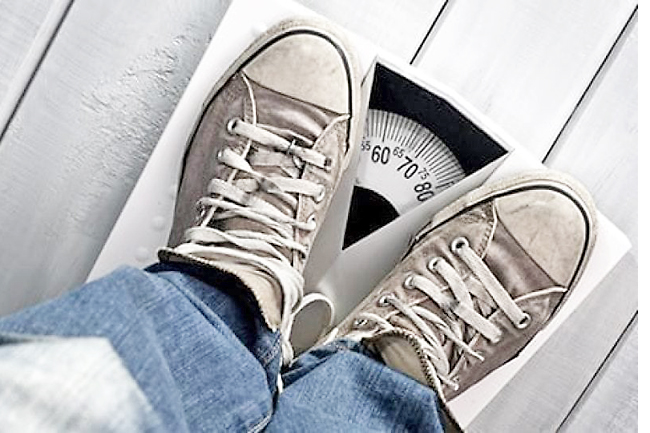Meghan Leahy
The Washington Post – We talk a lot about weight issues in this society, often about losing weight. What happens when we have a teen who is too thin? He’s not doing anything on purpose here. There’s no eating disorder; he’s just small. We’re working with our paediatrician and a nutritionist, but being a boy and an athlete and suddenly being much thinner than his friends who are bulking up and hitting puberty is really upsetting to him.
(And yes, they are teasing him for it.) How do we help him with this emotionally, without making him more anxious about it?
ANSWER: Too thin, too fat, too tall, too short, too curvy, too lean, too young, too old, too quiet, too loud. It is a never-ending list of “too muchness” for our teens, and every image from social media and our larger culture feeds a narrative that leads down rabbit holes. I remember being a young teen and longingly staring at the long, tan legs of the girls with whom I played field hockey. I was short and freckled, and I had chubby knees and no hope of being tan and lean. There was nothing I could do about this (though that didn’t stop me from going to tanning booths), so I trailed these other girls with faux confidence and envy for years. It wasn’t until my later teens that I realised my legs were perfectly fine, and like it or not, my knees were my mother’s. And I liked my knees, after all.

The teen brain naturally plays the comparison game. Young teens are especially prone to thinking that everything is about them, that everyone is watching them, and that they’re being judged all the time. Add the teasing from friends who are subtly making power plays, and it’s a time ripe for deep insecurity. This would all be upsetting in normal times, but it’s made worse by the pandemic. These boys left each other – years ago, in some cases – and are now coming together in high school with new bodies.
The gradual witness to change has been swapped with seemingly overnight changes. The pandemic has stolen large moments from teens (dances, graduations, sports games, theatrical performances), but it has also stolen the mundane transitions, so everything they see feels fast and shocking. It’s a trick on the brain that leads to much disorientation and (perceived and real) loneliness. You have taken the proper steps to check in with doctors and nutritionists. Disordered eating has spiked during the pandemic, and parents need to be on the lookout for it now more than ever. If there is no evidence of depression, anxiety, disordered eating, allergies or anything else medically or psychologically interfering with your son, start helping him move through his hard feelings (which we are always doing with teens, anyway).
The truth is, if you are alive, you are going to suffer. People are built to suffer; we get frustrated and alarmed, and we grow resilient and become brave.
The way we do this best is with the support of someone who loves us, who keeps showing up, who keeps listening, who keeps finding the silver lining in us, who lets us cry and helps us move forward. Teens, who may appear independent and aloof, need parents who consistently and compassionately show up and, in this case, listen to the suffering and challenge the narrative.
Your job is to hold the pain of your son feeling small and being teased about it. If you feel as if the teasing is chronic and acute, you can decide whether this is a group of friends who should hold so much sway in your son’s life; otherwise, listening and reflecting is the way through. And because we cannot mess with your son’s genetics for height or weight (mostly), we can help give him context. For instance, were you or his other parent also thin growing up? Are there pictures of you from your teens? Do you or he know any other adults (family or friends who are like family) who felt small next to their friends as teens? Are there movies or books where your son would feel seen? Stories of Olympians or sports stars? A small search would yield stories of countless people who felt small as teens, emotionally and physically. Find these stories, not to be toxically positive, but as proof that your son’s emotions are universal.
As for proactive problem-solving, I would use the Ross Greene approach to handle the teasing. Zero in when the teasing happens, and help your son create solutions that empower him.
You may be surprised where this conversation goes, so stay open, listen and be patient.
Your desire for your son to not suffer may interfere with creating solutions, so stay cognizant of your own panic and worry. Remember: Your goal is to raise a son who can sit with his fear, pain and worry and move through it all. Your goal isn’t to fix, change or control your son.


